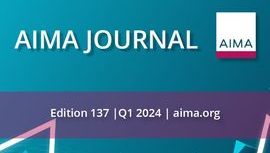How should the investment management industry tackle compliance with the FCA’s anti-greenwashing rule?
By Caitlin McErlane; Shaneil Shah, Baker McKenzie
Published: 18 March 2024
Greenwashing refers to the practice of making exaggerated, misleading or unsubstantiated claims in relation to the sustainability credentials of financial products and services. The risk of greenwashing claims has risen significantly in recent years, in tandem with investor demand for more sustainable investment products. This has been evidenced not only by well-publicised enforcement action both in Europe and the UK, but also by a flurry of recent claims by NGOs against financial institutions.
For a number of years, the FCA has commented that firms’ claims about their sustainability credentials must be “accurate”, “reasonable” and “substantiated”.1 It is therefore no surprise that the FCA recently designated “tackling greenwashing” as “a core regulatory priority”,2 and introduced a new anti-greenwashing rule as part of its wider package of sustainability disclosure requirements (the SDR Regime).3
The publication of the FCA’s recent guidance consultation on the anti-greenwashing rule (GC23/3),4 alongside its recent comments on how UK authorised fund managers are embedding its “guiding principles”,5 make this an opportune time for investment managers that are exposed in some way to the UK to look closely at how the new anti-greenwashing rule could affect fund distribution and investor-facing communications.
What is the anti-greenwashing rule, and which firms are in scope?
The anti-greenwashing rule, which is set to apply from 31 May this year, is primarily intended as a mechanism for the FCA to challenge firms and to take appropriate action if it considers that firms are making misleading claims about their products and services.
The text of the rule is set out in the FCA’s Environmental, Social and Governance sourcebook (the ESG Sourcebook) as follows:
|
“Anti-greenwashing ESG 4.3.1R… (1) This rule applies to a firm (whether it is undertaking sustainability in-scope business or not) which: (2) A firm must ensure that any reference to the sustainability characteristics of a product or service is: |
There are a number of threshold points to note regarding the anti-greenwashing rule’s scope of application:
- Firstly, the rule applies to all FCA authorised firms. It will therefore capture UK AIFMs, UCITS Management Companies, portfolio management firms and investment advisory firms. Overseas firms and investment management groups with a UK nexus will need to carefully consider whether and how it applies to their business. Two key points to note in this respect are as follows:
- UK authorised firms involved in the distribution of fund units will fall within scope of the rule. Therefore, if a third country investment manager relies on a UK firm to distribute offering documents or negotiate subscriptions with UK-based investors, that firm will need to comply with the anti-greenwashing rule. This effectively imports the FCA’s regulatory expectations around greenwashing ‘by the back door’, given that the distributor will need to assess any sustainability-related claims in marketing or promotional materials which it approves. UK firms that approve marketing materials on behalf of non-UK managers should, in particular, review their governance mechanisms with a view to ensuring that they are able to effectively challenge sustainability claims where necessary;
- Similarly, UK authorised firms that provide single managed account services or advisory services will also be caught within scope of the rule. This means that UK sub-managers and UK investment advisers providing intra-group services for the benefit of investment managers will be caught by scope of the rule, as will UK firms providing single managed account services to external clients.
The wide application of the anti-greenwashing rule contrasts with the narrower range of firms captured by the SDR Regime, which, upon implementation, will apply to: (i) UK managers of UK funds; and (ii) in a far more limited manner, to UK distributors of overseas funds;
- Secondly, the rule applies in respect of ‘communications’ with a UK-based ‘client’ in relation to a product or service, and also to the communication or approval of a financial promotion to a UK-based person. Whilst ‘communication’ is widely defined as “(in relation to a financial promotion) to communicate in any way, including causing a communication to be made or directed”, it is limited by the fact that the communication must necessarily relate to “a [financial] product or service”. It follows that a generic communication about a prospective investee company’s sustainability credentials would not fall within scope of the rule, unless it is made as part of a financial promotion (e.g., an inducement to purchase the company’s shares as a result of its sustainability credentials);
- Thirdly, such communications must relate to the environmental and/or social (i.e., sustainability) characteristics of such products or services – the FCA’s recent consultation paper notes that such claims may “include, but [are] not limited to, claims relating to the environment, climate or climate change, biodiversity and nature, social issues, or corporate social responsibility”.6 Similarly to the Sustainable Finance Disclosure Regulation (SFDR), therefore, there is a focus across both environmental and social claims; however, the SDR’s reference to “corporate social responsibility” is particularly broad-ranging;
- Lastly, whilst the ‘fair, clear and not misleading’ standard was only recently extended to ESG-related statements, it is familiar from existing regulations on marketing and client communications, and from the FCA’s Principles for Businesses. The FCA has notably relied upon the fair, clear and not misleading standard as the basis for a number of non-ESG related enforcement actions, given that its broad nature forms a convenient basis to strike out client-facing communications perceived as misleading in some way.
What additional regulatory guidance is available?
Given that the anti-greenwashing rule is reasonably high level, the FCA has been consulting on more detailed implementation guidance with a view to ensuring compliance by regulated firms. The guidance would require firms to ensure that their sustainability-related claims are:
- Correct and capable of being substantiated by ‘robust, relevant and credible evidence’;
- Clear and presented in a way that can be understood;
- Complete (i.e., not omitting or hiding important information) and considering the full life cycle of the product or service;
- Fair and meaningful in relation to comparisons to other products or services.7
Asset managers and their UK affiliates should note the FCA’s comments below when considering compliance with the anti-greenwashing rule (particularly given that these core features of the FCA’s guidance are unlikely to change substantially in the finalised text):
| Evidencing claims | It is clear that UK firms should not exaggerate the sustainability credentials of financial products or services (e.g. funds or single managed accounts). However, firms should also ensure that any sustainability-related information they provide is not conflicting or contradictory in any way, and that they are able to support all sustainability claims with “robust, relevant, and credible” evidence. Firms should consider specifically referencing supporting evidence alongside any such claims. |
| Providing a balanced picture |
The FCA stresses in its consultation that claims ‘should convey a representative picture of the product or service’, and that important information with the potential to influence decision-making should not be omitted or hidden. As per the FCA’s guidance, firms should ensure that:
|
| Making fair and meaningful comparisons |
Any comparisons a firm makes (e.g., between its products and others on the market, or between a previous iteration of the same product and a new version) should be fair and meaningful. In practice this means ensuring that:
Firms should also be cautious when making sustainability claims in circumstances where an investment may simply be meeting a minimum standard of compliance with existing legal requirements. |
When will the new rules and guidance become applicable?
Both the anti-greenwashing rule and accompanying guidance become effective on 31 May 2024. Whilst the rule is currently included in the ESG Sourcebook, the transitional provisions at ESG TP 1 confirm that the rule does not become applicable until 31 May 2024. Firms subject to the wider SDR Regime should take note of this date, as it falls before other aspects of the regime become applicable, including the labelling and disclosure rules (31 July 2024) and the naming and marketing rules (2 December 2024).
What other practical points should asset management firms bear in mind?
FCA authorised asset managers and other UK regulated firms will need to consider whether policy updates are required once the finalised guidance is published, and in the meantime consider the following practical points arising out of the draft guidance:
- The FCA’s new anti-greenwashing guidance draws on a number of concepts that already appear in the FCA Handbook which many firms will already be familiar with (e.g., the rules in COBS 4.5A on the use of past performance data and performance predictions). Firms may therefore consider leveraging existing internal processes around approving marketing materials;
- Firms should note that information about the firm itself, along with product-level information, may be considered part of the ‘representative picture’ that clients and investors take into account when making decisions regarding financial products and services. Firms should therefore consider how firm-wide sustainability claims interact with product-level claims, and whether the combination could be perceived to offend against the fair, clear and not misleading rule;
- Firms should also note the wide application of the anti-greenwashing rule, which encompasses, but is not limited to, “statements, assertions, strategies, targets, policies, information” as well as “images, logos and colours”, all of which can contribute to the overall impression of a sustainability-related claim.8 Marketing and website materials – particularly any social media marketing – will therefore need to be reviewed in a holistic manner;
- The FCA references both the Advertising Standards Authority (ASA) and Competition and Markets Authority in its guidance. Firms should in particular be aware of this dual source of liability and refer to the ASA’s guidance on misleading environmental claims where relevant.
1 FCA | Letter – AFM Chair | July 2021
2 FCA | CP22/20 | October 2022
3 FCA | PS23/16 | November 2023
4 FCA | GC23/3 | November 2023
6 FCA | GC23/3 | November 2023
7 FCA | GC23/3 | November 2023
8 FCA | GC23/3 | November 2023








